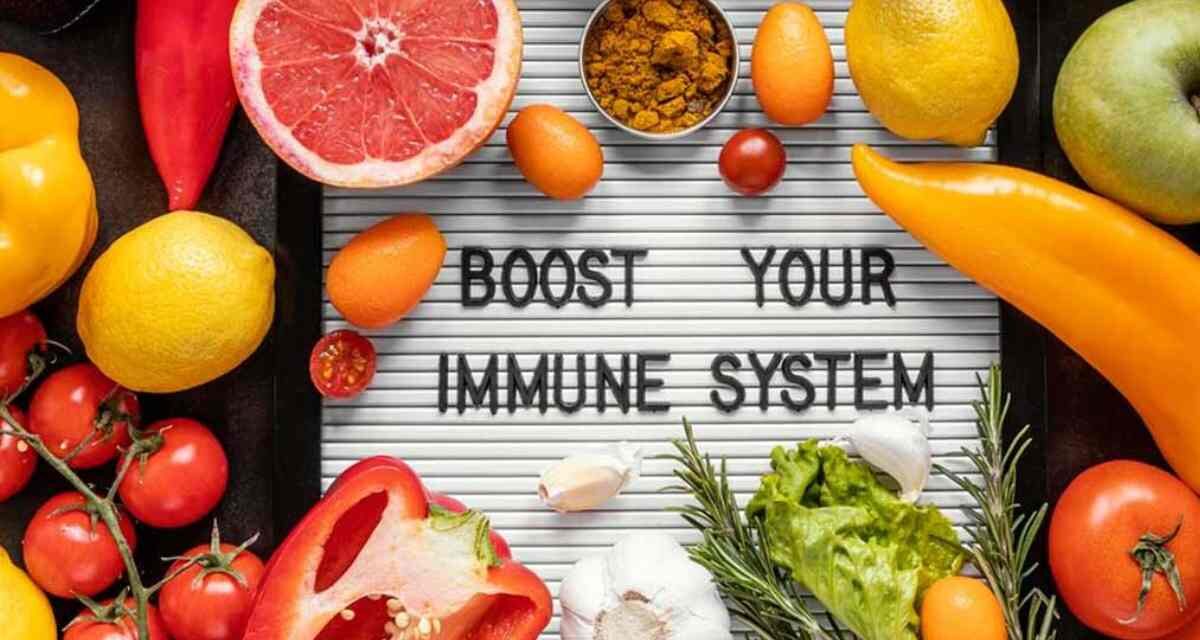Boosting Your immunity: How can you strengthen your immune system? Your immune system does an exceptional job of fighting pathogenic microorganisms. But sometimes, it fails: a germ manages to enter and make you sick.
Is it possible to intervene in this process and strengthen the immune system? What if you improved your diet? Do you take specific vitamins or herbal supplements? Making other lifestyle changes in the hopes of triggering a near-perfect immune answer?
What can you do to boost your immune system?
The impression of boosting immunity is tempting. But the possibility of doing so has proven elusive for several reasons. The immune system is a system, not a single unit. To function well, balance and harmony are required.
Researchers still do not know much about the complexity and interconnectedness of the immune answer. There are no methodically proven direct links between lifestyle and improved immune function.
But that doesn’t mean that the effects of lifestyle on the immune system aren’t exciting and shouldn’t be studied.
Researchers are studying the effects of diet, exercise, age, psychological stress, and other issues on the immune response of animals and humans. In the meantime. General healthy living strategies make sense because they are likely to support immune function and provide other proven health benefits.
Healthy Ways to Boost Your Immune System
Your first line of defence is choosing a healthy lifestyle. Following general health guidelines is the best step to maintain the natural function of your immune system. Every part of your body, including your immune system, functions best when protected from environmental stressors and strengthened by healthy living strategies like these:
- Do not smoke.
- Eat a diet rich in fruits and vegetables.
- Do sports frequently.
- Maintain a healthy weight.
- If you beverage alcohol, do so in moderation.
- Get enough sleep.
- Take measures to prevent infections, such as B. washing hands frequently and cooking meat thoroughly.
- Try to minimize stress.
- Stay up to date on all recommended vaccinations. Vaccines prepare your immune system to fight infections before they take hold in your body.
Boosting Your immunity the healthy way.
Many products on store shelves claim to boost or support immunity. But the concept of boosting immunity makes little scientific sense.
In fact, increasing the number of cells in the body (immune cells or otherwise) is not necessarily a good thing. For example, athletes who practice “blood doping” (pumping blood into their bodies to increase their blood cell count and improve their performance) are at risk of stroke.
Trying to stimulate the cells of your immune system is predominantly complicated because there are so many different types of cells in the protected system that respond to so many different microbes in very different ways.
Which cells should you strengthen. And in what quantities? So far, scientists don’t know the answer. It is known that the body continually produces immune cells benefits. It indeed produces many more lymphocytes than it can use.
Excess cells are removed through a natural procedure of cell death called apoptosis: some before an action occurs, others after the battle is won. No one distinguishes how many cells or what combination of cells the immune system needs to function optimally.
Maintain a healthy diet for Boosting Your immunity

Like most things in the body. A healthy diet is the key to a robust immune system. This means ensuring you eat plenty of vegetables, fruits Legumes, whole grains, lean proteins, and healthy fats.
“When your body has adequate amounts of the micronutrients found in these foods. It helps maintain immune system homeostasis,” Dr. Lin added.
- These micronutrients include:
- Vitamin B6 found in chicken, salmon, tuna, bananas, green vegetables and potatoes (with peel)
- Vitamin C is found in citrus fruits such as oranges and strawberries, as well as tomatoes, broccoli and spinach.
- Vitamin E is found in almonds, sunflower and safflower oils, sunflower seeds, peanut butter and spinach.
- Zinc is found in oysters, red meat, poultry, beans and dairy products.
- Magnesium is found in whole grains, nuts and seeds.
Because experts believe your body absorbs vitamins most efficiently from food sources rather than supplements, a balanced diet is the best way to support your immune system. (Related: Is Your Diet Getting Enough Vitamins?)
Immune system and age
Our immune response capacity decreases as we age, leading to more infections and cancer. As life expectancy has increased in developed countries, the incidence of age-related diseases has also increased.
While some people age healthily. Many studies conclude that older folks are more likely to contract and, more importantly, die from infectious diseases compared to younger people.
Respiratory infections, including influenza. The COVID-19 virus and especially pneumonia. Are the leading cause of death in people over 65 years of age worldwide.
No one knows why this happens, but some scientists note that this increased risk is linked to a decline in T cells. Possibly because the thymus atrophies with age and produces fewer T cells to fight infections.
Whether this decline in thymus function explains the decline in T cells or whether other vicissitudes play a character is not fully understood. Others are attentive to whether the bone marrow produces stem cells less efficiently. Which become immune system cells.
There appears to be a connection between diet and immunity in older people. A form of malnutrition that is surprisingly common even in rich countries is what is known as “micronutrient malnutrition.”
Micronutrient malnutrition can occur in older people. Where a person lacks some essential vitamins and trace elements that are obtained or supplemented through food. Older people tend to eat less and have less variety in their diet.
An important question is whether dietary supplements can help certain people maintain a healthier immune system.
Exercise: Good or bad for Boosting Your immunity?
Regular exercise is one of the pillars of a healthy life. It improves cardiovascular health, lowers blood pressure. Helps control body weight and protects against various diseases.
But does it help boost your immune system naturally and keep you healthy? Just like a nutritious diet. Exercise can contribute to good general health and, therefore, a healthy immune system.





